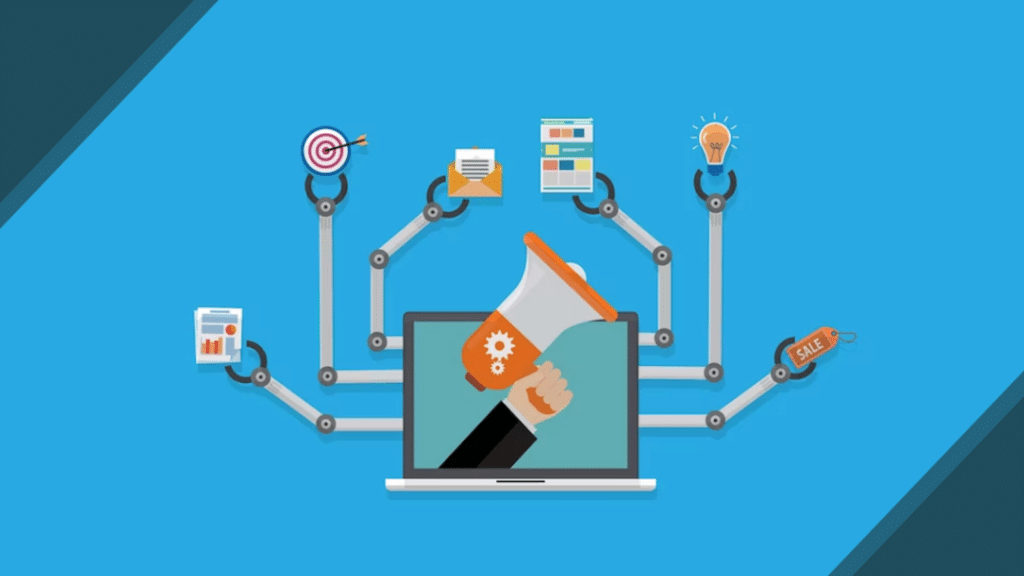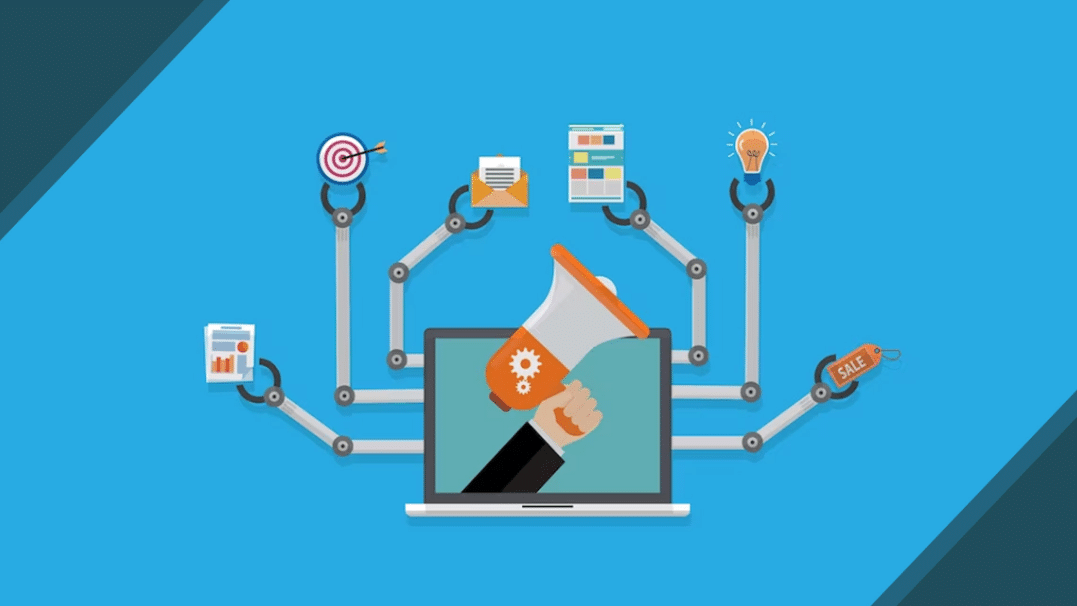In today’s digital age, the world of marketing is constantly evolving. One term that you’ve likely come across is “marketing automation.” But what exactly is marketing automation, and how can it benefit businesses? In this comprehensive guide, we’ll delve into the realm of marketing automation, exploring its intricacies, applications, and advantages. By the end of this article, you’ll have a clear understanding of what marketing automation is and why it’s a game-changer in the world of marketing.
What is Marketing Automation?

At its core, marketing automation refers to the use of technology and software to streamline and automate marketing tasks and processes. These tasks can include email marketing, social media posting, customer segmentation, lead nurturing, and much more. The goal is to make marketing efforts more efficient and effective while providing a personalized experience for customers.
The Evolution of Marketing Automation
Marketing automation has come a long way since its inception. Initially, it was primarily used for email marketing automation. However, it has evolved into a sophisticated system capable of handling various marketing channels and activities seamlessly.
Key Components of Marketing Automation
To grasp the concept fully, let’s break down the key components of marketing automation:
1. Customer Relationship Management (CRM)
CRM systems are the foundation of marketing automation. They store essential customer data, enabling businesses to segment their audience effectively, target specific groups, and personalize marketing messages.
2. Email Marketing Automation
Email marketing remains a powerful tool in a marketer’s arsenal. Marketing automation allows for the creation of personalized email campaigns, triggered by specific customer actions or behaviors.
3. Lead Nurturing
Nurturing leads is essential for converting prospects into loyal customers. Automation helps guide leads through the sales funnel by delivering relevant content and offers based on their interests and interactions.
4. Social Media Management
Marketing automation tools enable businesses to schedule and manage social media posts, engage with followers, and analyze performance metrics across various platforms.
5. Analytics and Reporting
Data-driven decisions are crucial in marketing. Automation platforms provide in-depth analytics and reporting, helping businesses track campaign performance and make necessary adjustments.
How Does Marketing Automation Work?
Now that we’ve covered the components let’s see how marketing automation works in practice:
Marketing automation software collects and stores customer data from various touchpoints. This data is then used to create detailed customer profiles.
Based on these profiles, businesses can segment their audience into different categories, ensuring that marketing messages are highly targeted.
Automated workflows are created to trigger specific actions or messages based on customer behavior. For example, a customer who abandons their shopping cart may receive an automated reminder email with a special offer.
As customers engage with the brand through emails, social media, or the website, their interactions are tracked and analyzed.
The insights gained from this data help refine marketing strategies and improve customer engagement.
Benefits of Marketing Automation
1. Improved Efficiency
One of the most significant advantages of marketing automation is improved efficiency. Repetitive tasks that once consumed valuable time can now be automated, freeing up resources for more strategic activities.
2. Personalization at Scale
Marketing automation allows businesses to deliver personalized content and offers to a vast audience. Each customer receives tailored messages, enhancing their experience and increasing the likelihood of conversion.
3. Enhanced Lead Generation
By nurturing leads with relevant content and timely follow-ups, marketing automation significantly boosts lead generation efforts. Businesses can identify and prioritize high-quality leads for sales teams to focus on.
4. Better Customer Engagement
Automation ensures that customers receive timely communications and responses, leading to improved engagement and satisfaction.
5. Data-Driven Decision Making
With robust analytics, businesses can make informed decisions based on real-time data, resulting in more effective marketing strategies.
6. Increased ROI
Ultimately, the combination of efficiency, personalization, and data-driven insights leads to a higher return on investment (ROI) for marketing efforts.
FAQs (Frequently Asked Questions)
How does marketing automation benefit small businesses?
Marketing automation levels the playing field for small businesses by enabling them to compete with larger enterprises in terms of marketing efficiency and customer engagement.
Is marketing automation suitable for all industries?
Yes, marketing automation can be applied to various industries, including e-commerce, B2B, healthcare, and more. Its versatility makes it a valuable tool for businesses of all types.
Can marketing automation replace human interaction in marketing?
While marketing automation streamlines processes, human interaction remains crucial for building genuine relationships with customers. It complements rather than replaces human efforts.
What are some popular marketing automation platforms?
Popular marketing automation platforms include HubSpot, Marketo, Pardot, and Mailchimp, among others.
Is marketing automation expensive to implement?
The cost of marketing automation varies depending on the platform and the scale of implementation. Many options cater to businesses of different sizes and budgets.
What are the key challenges in implementing marketing automation?
Common challenges include selecting the right platform, integrating it with existing systems, and ensuring data security and compliance with regulations.
Conclusion
In conclusion, marketing automation is a transformative tool that empowers businesses to streamline their marketing efforts, engage customers more effectively, and achieve a higher ROI. By leveraging technology and data, businesses can create personalized experiences for their audience, ultimately driving growth and success. Embrace the power of marketing automation to stay competitive in today’s dynamic marketplace.
Read More :
